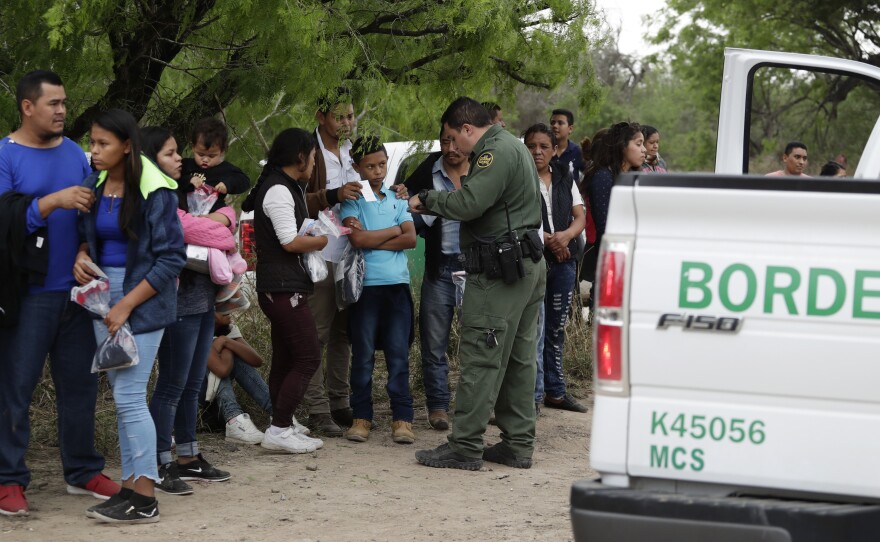The Trump Administration is moving forward with a plan to collect the DNA of immigrants held in detention. That’s according to officials with the Department of Homeland Security.
In a conference call with reporters yesterday, DHS officials outlined a plan to expand DNA collection to all immigrants held in detention.
This follows a pilot program conducted this summer along the southwestern border, which DHS used to crack down on what it deemed “fraudulent families.”
But the new collection program would differ in substantial ways. It would not only be used to determine whether immigrants are actually the parents of the children they say are theirs. It will also upload those profiles to the FBI’s DNA database. The database is shared by hundreds of law enforcement agencies across the country.
RELATED: Federal Government To Expand DNA Collection At Border
Mitra Ebadolahi, an attorney with the American Civil Liberties Union of San Diego and Imperial Counties, believes that this would drastically expand how DNA is being used on non-criminal populations.
“The new proposal would funnel potentially thousands of new records to the FBI,” Ebadolahi told KPBS. “Doing that for people who have not been arrested, convicted, or charged with serious crimes, alters DNA collection from a criminal investigation tool, deeply problematic as it may be, to a population surveillance tool, a much broader range of people are going to be scooped up as part of this expansion. And we feel that’s basically contrary to fundamental notions of a free society.”
DHS officials said the DNA collection would supplement ongoing efforts to keep track of immigrant’s biometric data. They declined to say why they were implementing the program, simply saying that they had the right to so under a 2005 law.
Already, individuals who plead guilty to immigration-related crimes like illegal entry have their DNA entered into the FBI’s database.
The Department of Homeland Security is still figuring out if it plans to collect the DNA of children in immigration custody. The agency is waiting for the Department of Justice to issue a rule authorizing the program before DHS rolls it out.








